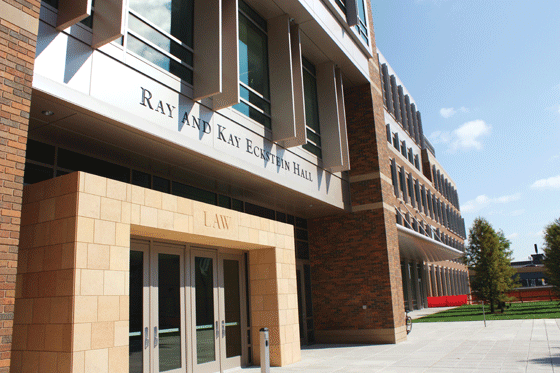Shortly after moving into your newly leased house, the bathroom light goes out, the refrigerator won’t work and your bedroom lock is broken.
You run to the store and spend your last dime on repairs, only to find out later that all you needed to do was call the landlord to have the situation taken care of.
For many students, leaving the residence halls after sophomore year will result in their first encounter with a landlord and the process of leasing a house or an apartment. Few students know what to do when their utilities break down, or if the landlord just isn’t keeping up with maintenance and is refusing to pay for damages.
Sam Corrao, owner of Corrao Property Management, said tenants are not entirely without leverage in the situation.
“If you are living in a house, and you have a refrigerator, or a stove that doesn’t work, or the ceiling is falling in the living room, and the landlord says he will fix it and isn’t, you can withhold the rent,” Corrao said.
Corrao said that it has never happened to him, but there are also plenty of circumstances where a landlord won’t pay for maintenance work.
“There are a lot of landlords that if there is a party, and that causes damage to the house, the landlord won’t pay for it,” Corrao said. “If a resident kicks in his own door, he gets placed last on my list for maintenance.”
Daniel Bergen, interim assistant vice president of student affairs, said that it is legal to withhold rent, but that it should be used cautiously, and is best used if an attorney is present.
“It is not advisable to automatically withhold rent to coerce a property owner/manager to address a maintenance issue,” Bergen said.
Bergen gave three actions that he recommends students take if they are having problems with their landlord, one of which includes a free legal service offered by the Marquette Law School.
- Immediately notify the property owner or manager of the concern and request a timeline for the issue to be addressed.
- If the property owner or manager doesn’t get back to you, put down in writing the nature of the concern and the direct impact it has on your living situation. This should include a timeline of the events starting with the date it first became a concern and the date the landlord was originally notified. Another request should immediately be made to address the issue within an appropriate timeframe.
- If you still hear nothing back, Marquette offers two student services that can help:
- University Apartments and Off-campus Student Services, who can provide further resources or advocate on your behalf if necessary, and;
- Marquette Volunteer Legal Clinic, which offers free legal advice to students and community members struggling with civil legal issues, including landlord-tenant disputes.
Finally, a tenant always has the right to file a complaint with the Department of Neighborhood Services.


